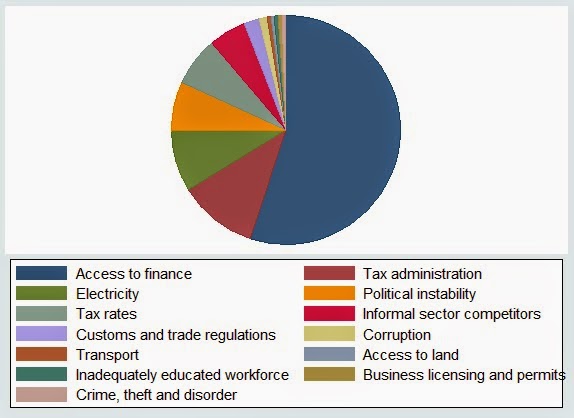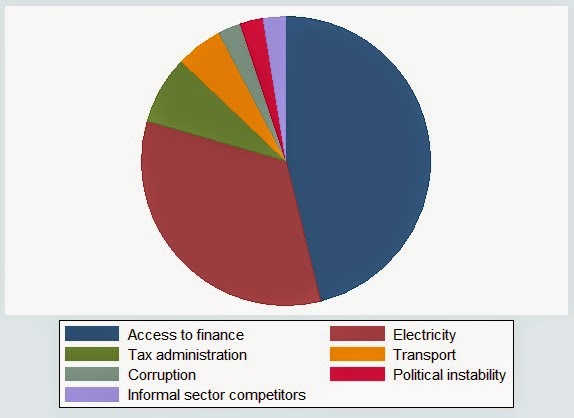The DRC is big; the size to Western Europe is the usual comparison in the UK media. It is also quite difficult to reach different parts by transport, and the communications infrastructure is under development, so it would be surprising if the business environments faced by companies in different regions were the same.
They're not, according to data from the World Bank's Enterprise Surveys. Here are the primary challenges to operations reported by companies based in the capital, Kinshasa:
Financial management is the main issue here for almost three quarters of companies - getting finance, handling tax, and paying tax.
Here are the main challenges reported by companies based in Kisangani, in the heart of the North West:
There's good money to be made by solving financing problems, but electricity supply offers almost as many opportunities. Although Kisangani is not too distant from the remaining areas of Congolese conflict (about 500 km from the Kivu regions), political instability hardly registers as the main problem for companies there.
For Lubumbashi in the South East near the Zambian border, the problems are:
Companies in Lubumbashi also require financing, but handling informal sector competitors is another issue there. There appear to be opportunities for financiers, brand differentiation, and perhaps sales of capital equipment to differentiate the products of a formal sector business from the products of informal sector rivals. Transport, labour regulations, and corruption are also concerns. The transport and consultancy seem to have scope for development, as well as companies that offer advice or intermediary services when handling government bureaucracy.
For companies in Matadi in the West near the Atlantic coast, the following problems are most concerning:
In Matadi, political instability is the major problem. In the absence of a solution from politicians themselves, there seem to be openings in risk management consultancy, security, and supply of business interruption services (such as premises relocation or reconstruction) able to handle disruption easily.





No comments:
Post a Comment